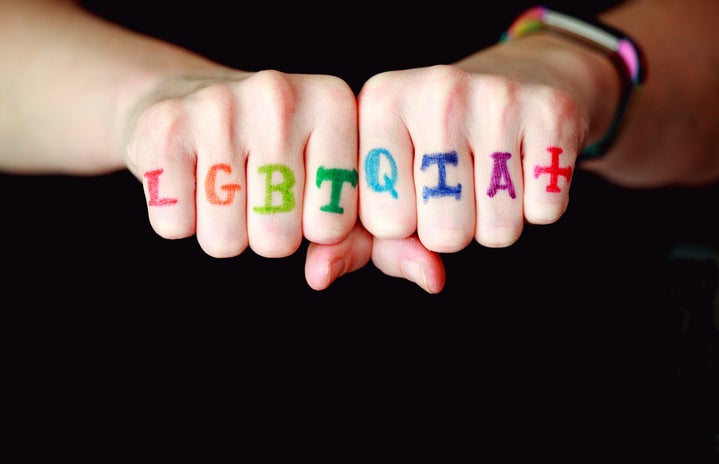Sometimes privilege can come in different forms. For example, I identify as a straight cisgender woman who is an ally of the LGBTQ+ community. However, because I identify as straight and cis, I have privilege that my LGTBQ+ friends don’t. I will never know the pain of being discriminated against for identifying as transgender or for walking down the street with a partner of the same gender.
So, I make it my job to amplify and support the voices of those in the community. This is particularly important as anti-LGBTQ+ laws are proposed every single day in America. While the country may have taken baby steps towards helping the community, it still has miles to go. If you too want to learn how to best support your LGBTQ+ pals, I’ve compiled a list of steps I’ve taken. There is no one way to be an ally, but these might be beginning steps if you don’t know where to start:
- Recognize Your Privilege
-
As I already stated, I have a huge amount of privilege as a cishet woman. I know the hardship the community faces is extremely real. For example, the National Center for Transgender Equality stated that one in four transgender people have lost their job because of bias. Three-fourths have experienced discrimination in the workplace. Even though I may never truly understand it because I won’t experience it, I can empathize and be there for my friends who may.
Acknowledging privilege was a little difficult for me because I’m an immigrant Latina woman who has always been categorized as a minority. However, I had to learn that there were other aspects of my identity that protected me from certain forms of discrimination and oppression. You may be angry, ashamed, or guilty, but remember that you did not create the system. However, we do have the power to make positive changes with the knowledge we acquire.
- Ask Questions & Do Research
-
While your LGBTQ+ friends may be more than happy to answer your questions, it’s also important to do your own research. Sometimes answering our questions may cause them to relive trauma.
Technology is extremely advanced now and we have almost all the knowledge of the world in one device. There are plenty of people creating content as a resource to answer questions you have.
Of course, it’s okay to ask your friends questions if they are comfortable with it!
- Do Real-Life Activism
-
Social media is a powerful tool to spread important information, but it may cause our allyship to be lazy. It’s easy to repost a story or an image. While it’s important to continue to do that, your time may be more valuable spent helping out at local organizations. Volunteering or donating is just as important and it shows that you’re willing to go past an Instagram post.
Here’s a list of organizations you can work with:
– GLSEN
– SAGE
- Speak Up
-
Sometimes all it takes is to speak up during a conversation. If you hear or see someone who is saying or doing anything that’s damaging towards the community, gently point out their mistake. A correction doesn’t have to be confrontational. If that person truly wants to do better, they will not be offended when they’re corrected. Speaking up is part of being an advocate. Words and behavior have the power to really affect someone.
Ways to advocate:
– Correct people who misgender you or others, even if it’s in a separate room.
– Speak out against slurs or insensitive and charged language. Promote diversity at school or work. Add pronouns to your email signature or your Zoom name.
– Show support by wearing Pride items such as a pin or a T-shirt.
- Listen To LGBTQ+ Peers
-
This is vital to being an ally. This is not our time to steal the show or to make it about ourselves. Being an ally means you are willing to listen to what your friends need. Sometimes we may want to defend them, but always check to make sure they have the chance to speak up for themselves first. Our privilege is meant to benefit the community and not our ego. Ask how you can help instead of inserting yourself in positions or situations.
There are many, many more ways to help, but here are a few to start your allyship.


